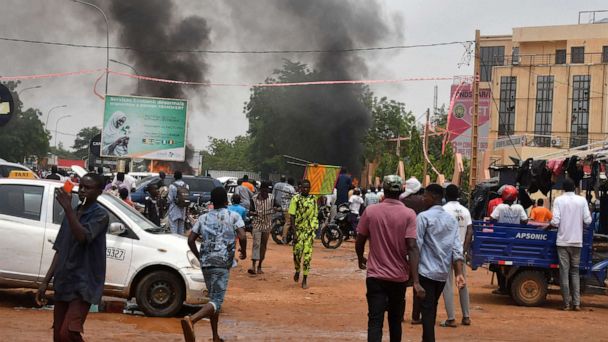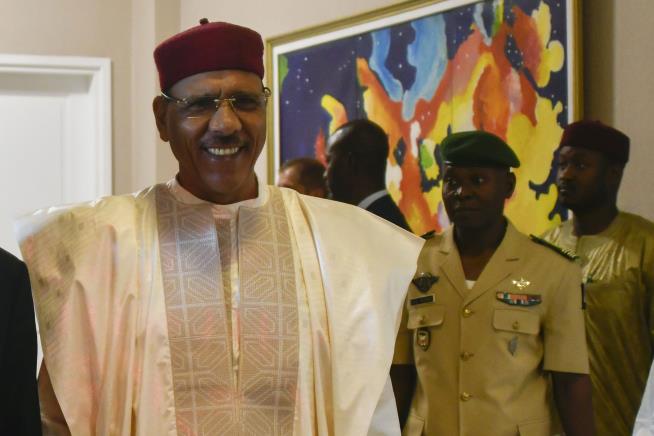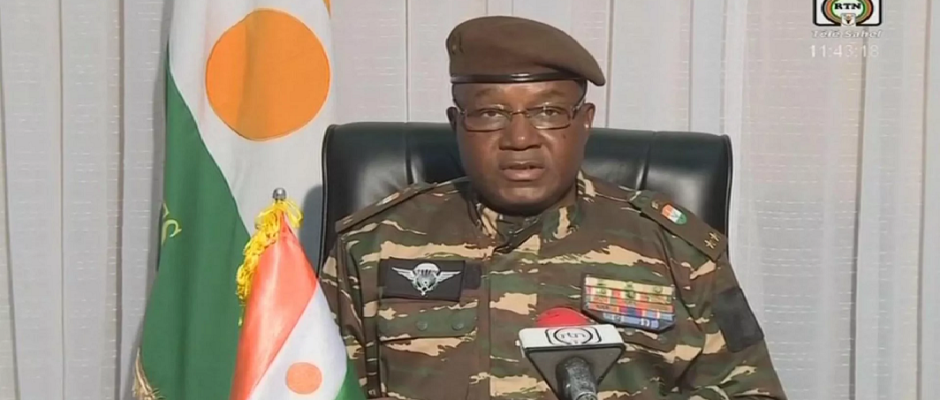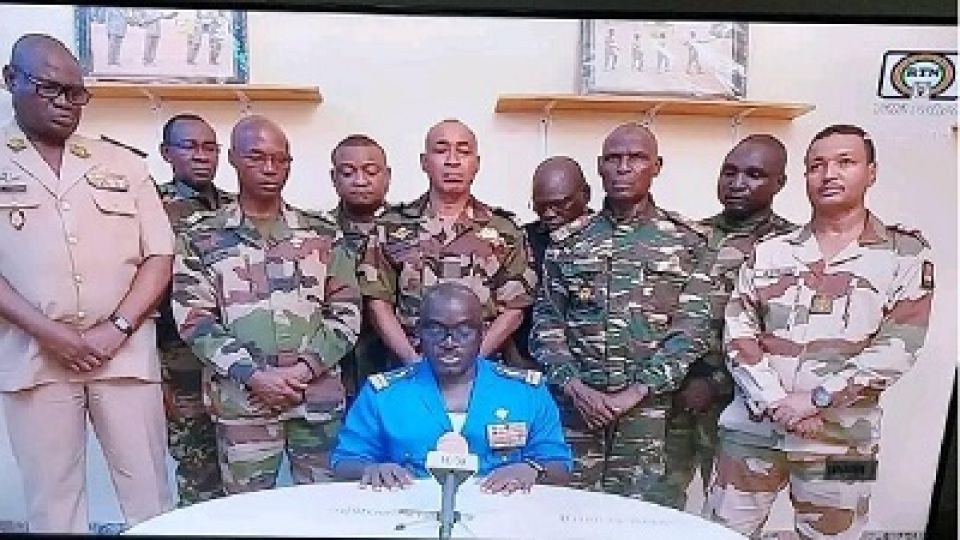A History of Violence:
President Bazoum’s election in 2021 marked a rare democratic transfer of power in Niger, a country that has experienced four military coups since gaining independence from France in 1960.
Neighboring Mali and Burkina Faso have also witnessed four military takeovers since 2020, triggered partly by frustrations over the government’s inability to quell insurgencies in the Sahel region, which encompasses Niger. The region is also referred to as the “coup belt.”
In March 2021, there was a foiled coup attempt in Niger when a military unit attempted to seize the presidential palace just days before Bazoum, the newly elected president, was scheduled to be sworn in. Also in 2021, a military junta took control of the government of Guinea.
Since then, the United States and Europe have provided much support to the government of Niger, hoping to use them as strong allies to defeat the insurgencies and Islamist uprisings in the region. Germany is currently undergoing a European initiative to improve Niger’s military through resources and training.
The French military, operating in their former colonies, has been asked to leave several of Niger’s neighbors, with many instead turning to Russia for military support.
Ulf Laessing, leader of the Sahel Programme for German think-tank Konrad-Adenauer-Stiftung, noted, “Bazoum has been the West’s only hope in the Sahel region. France, the US, and the EU have spent much of their resources in the region to bolster Niger and its security forces.”
Foreign Involvement and Uranium:
Niger has witnessed extremist attacks targeting civilians and military personnel, although the overall security situation is comparatively less severe than in neighboring Mali and Burkina Faso.
Both Mali and Burkina Faso have undergone similar coups and have both ousted the French military from their borders in favor of Russia’s Wagner Group. Many international analysts worry the same may occur in Niger, with rhetoric already accusing France of not respecting the sovereignty of Niger.
Several Telegram channels related to Wagner Group have claimed a hand in the Niger coup, and some street rallies in recent days have seen the Russian flag being waved; however, the extent of Russia’s involvement, if at all, is unknown and highly speculative.

While Russia echoed the international community’s call to release ousted President Bazoum, Wagner’s Yevgeny Priozhin welcomed this week’s military coup as “a declaration of independence” in an audio statement on a Telegram channel linked to Wagner.
“What happened in Niger is nothing other than the struggle of the people of Niger with their colonizers. With colonizers who are trying to foist their rules of life on them and their conditions and keep them in the state that Africa was in hundreds of years ago. Today, this is effectively gaining their independence. The rest will, without doubt, depend on the citizens of Niger and how effective governance will be, but the main thing is this: They have got rid of the colonizers,” the audio message said.
Russia has previously expressed interest in Niger’s Uranium deposits, something that France heavily relies on. Over 50% of the uranium ore extracted from Niger is used to fuel French nuclear power plants. A third of all uranium for France’s reactors comes from Niger.
Who Is Omar Tchiani?
The new leader has a relatively unknown past. According to reports, Tchiani led the unit that thwarted an attempted coup in the country in March 2021. The military group made their move to seize the presidential palace just days before Bazoum, who had recently been elected, was scheduled to be sworn in as the new leader.
Before that, he was serving as a military attaché at Niger’s embassy in Germany. He had prior experience leading a unit in Agadez, a region once known as the world’s smuggling capital. He frequently commanded operations in the Niger desert to combat traffickers.
In 2011, he was entrusted with leading the presidential guards by former President Mahamadou Issoufou, who preceded Bazoum as the nation’s leader. Tchiani continues to maintain a strong alliance with Issoufou, who elevated him to the rank of general in 2018.
Nigeriens Reactions:
The deposed president, Muhammad Bazoum, wrote on Twitter on Thursday, “The hard-won achievements will be safeguarded. All Nigeriens who love democracy and freedom will see to it.”

Protests have already taken to the streets, with several reports of security forces firing live ammunition at the crowds. Al Jazeera reports that support for Bazoum among the population and political parties appears strong.
Minister of Foreign Affairs Hassoumi Massoudou told France24, “”There was an attempted coup, but of course, we cannot accept it.”
“We call on all Nigerien democratic patriots to stand up as one to say no to this factious action that tends to set us back decades and block the progress of our country,” he said in the interview.
President Bazoum’s status going forward is unclear, as he and his family remain imprisoned in the presidential palace.



